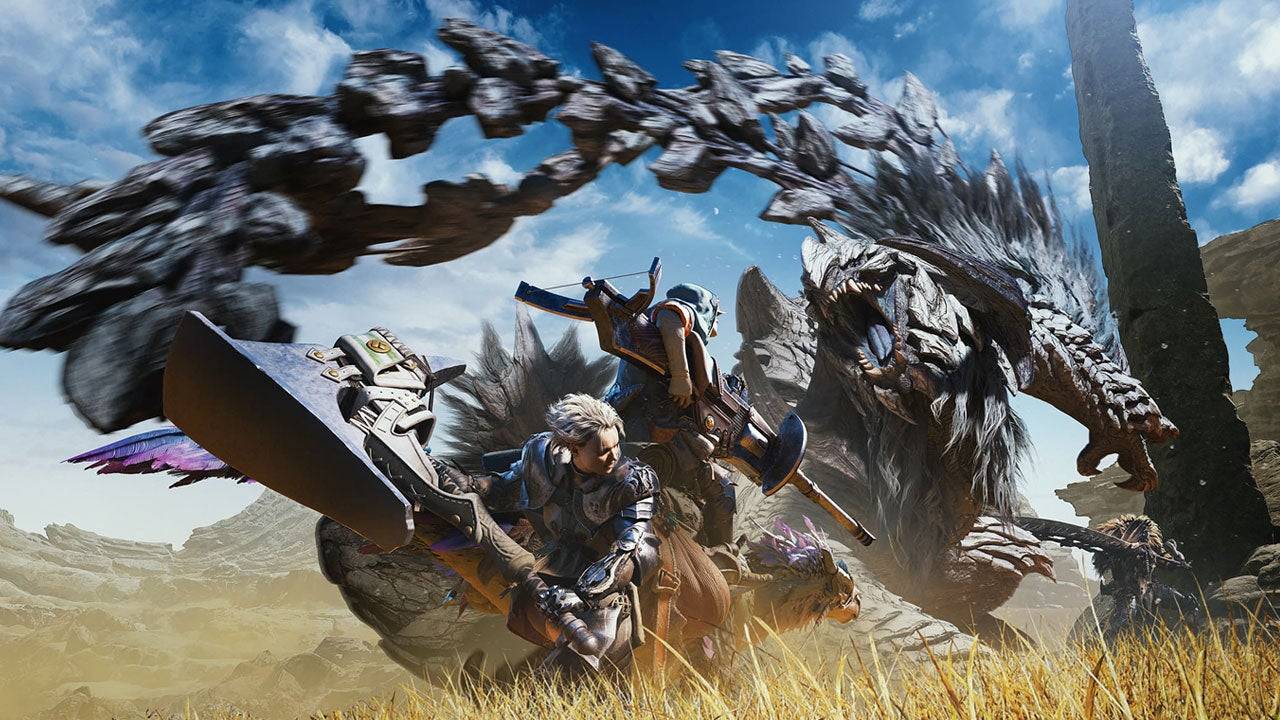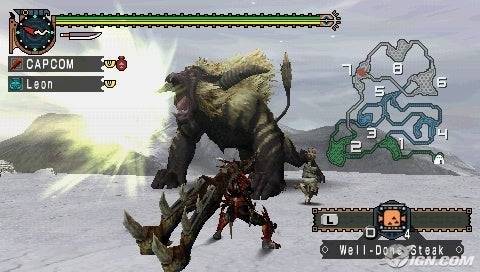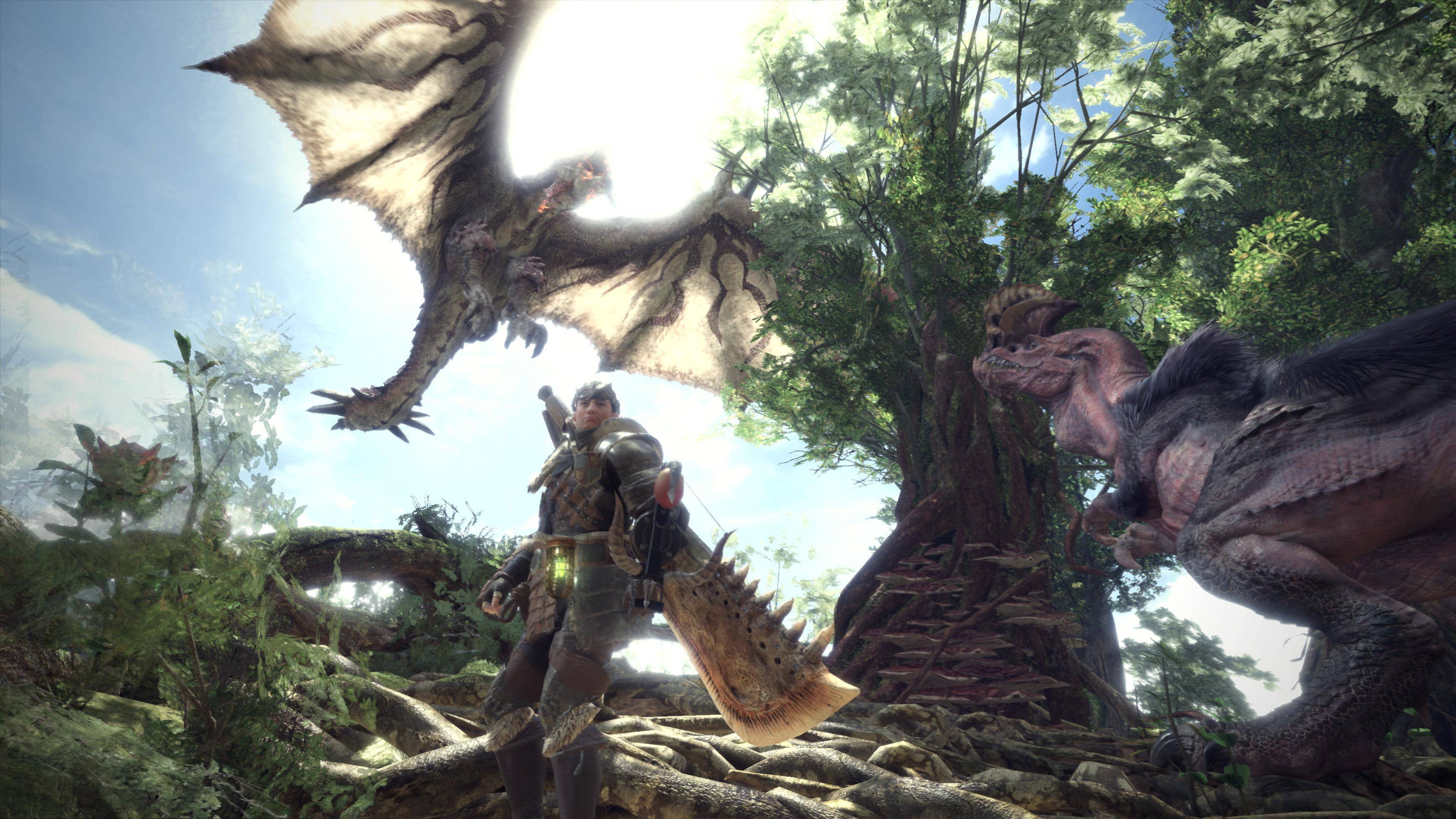Ragnarok Online 3 Pre-Order DetailsRagnarok Online 3 is not yet open for pre-order on any official storefront. Stay tuned for updates as soon as official announcements are made.Similar Games to Try
Author: NovaReading:0
Before its global release, *Monster Hunter Wilds* shattered pre-order records on Steam and PlayStation, mirroring the phenomenal success of its predecessors, *Monster Hunter Rise* (2022) and *Monster Hunter: World* (2018). This achievement firmly establishes Capcom's unique RPG series as a global gaming powerhouse. However, this wasn't always the case.
Less than a decade ago, such widespread global popularity would have seemed improbable. The original 2004 release received mixed reviews. It wasn't until the 2005 PSP release that the series truly exploded—in Japan. For years, *Monster Hunter* epitomized the "bigger in Japan" phenomenon. While the reasons are multifaceted, Capcom persistently sought international market penetration. *Monster Hunter: World*, *Rise*, and now *Wilds* prove their efforts were richly rewarded.
This is the story of *Monster Hunter*'s journey from domestic darling to global icon.

Around the 2016 launch of *Street Fighter V*, Capcom underwent an internal restructuring to prepare for a new generation of games utilizing their RE Engine, replacing the aging MT Framework. This wasn't just a technological shift; it signaled a commitment to creating games for a global, not just regionally specific, audience. Hideaki Itsuno, a former Capcom game director known for *Devil May Cry*, explains: “The change of the engine and the clear goal to make games that reach the global market—games that are fun for everyone—were key factors.”
Capcom's PS3 and Xbox 360 era games often felt like attempts to capture a perceived "Western market." While *Resident Evil 4* was a success, titles like *Umbrella Corps* and the *Lost Planet* series, chasing late-2000s Western trends, fell short. Capcom realized the need for broader appeal.
“We focused on making good games that would resonate globally,” Itsuno adds. The 2017 launch of *Resident Evil 7* marked the beginning of a Capcom renaissance.
No series embodies this global ambition more than *Monster Hunter*. While it had a dedicated Western fanbase, its popularity in Japan far surpassed other regions. This wasn't inherent to the series' design, but rather a result of several factors.
The shift to PSP with *Monster Hunter Freedom Unite* proved crucial. Japan's robust handheld gaming market, fueled by the PSP, DS, and Switch, provided a fertile ground. Executive producer Ryozo Tsujimoto highlights Japan's advanced wireless internet network, enabling reliable online play with friends—a significant advantage over the US at the time.

“Japan's network environment allowed for easy online play,” Tsujimoto explains. “Moving to handhelds expanded the multiplayer player base.” *Monster Hunter's* cooperative gameplay thrived on this readily available connectivity. This led to a cycle: Japanese best-sellers fueled Japan-only content and events, reinforcing its image as a "Japan-only" brand.
Western fans watched enviously. However, as Western internet infrastructure improved, Tsujimoto saw an opportunity. *Monster Hunter: World* (2018), released simultaneously worldwide on PS4, Xbox One, and PC, represented a massive shift. It offered AAA console-quality action, larger environments, and bigger monsters.
“Calling it *Monster Hunter: World* was a nod to our desire to reach a global audience,” Tsujimoto reveals. Simultaneous worldwide releases, eliminating region-locked content, were crucial (“realigning ourselves to meet global standards”).

Beyond simultaneous releases, the team conducted extensive global playtests to refine the formula. “Feedback from those tests impacted game systems and contributed significantly to the game's global success,” Tsujimoto states. One key change was displaying damage numbers—a small tweak with a significant impact.
Previous titles sold 1.3 to 5 million copies. *Monster Hunter: World* and *Rise* each surpassed 20 million. This wasn't accidental. Instead of altering *Monster Hunter*'s core, Capcom focused on improving accessibility without compromising its essence. This strategy continues with *Wilds*.
“At its core, *Monster Hunter* is an action game,” Tsujimoto explains. “The sense of accomplishment from mastering the action is key. We analyze where players struggle, gather feedback, and use that knowledge to improve the experience for new players. This is reflected in *Wilds*' design.”
Within 35 minutes of release, *Monster Hunter Wilds* reached 738,000 concurrent Steam players—double *World's* peak. Positive reviews and promised future content suggest *Wilds* will surpass even *World* and *Rise*'s success, continuing the series' global conquest.
 LATEST ARTICLES
LATEST ARTICLES